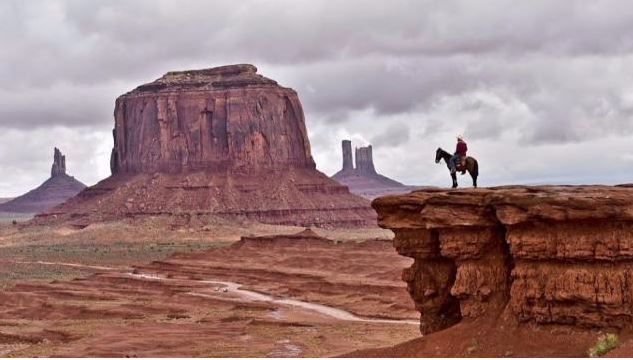BY DEVIN HENRY – 10/09/17 04:41 PM EDT
A House committee on Wednesday will mark up a bill to overhaul the Antiquities Act, a law that gives the president power to establish national monuments for preservation.
The bill, introduced Friday by House Natural Resources Chairman Rob Bishop (R-Utah) would put new rules on large national monument designations made by presidents. Antiquities Act reform is a key priority for some conservatives, interest groups and Westerners.
The bill would maintain the president’s power to declare national monuments, but any monument larger than 640 acres would be required to go through a federal environmental review process.
The legislation applies increasingly strict rules to potential monuments the larger they get, ultimately requiring county and state governments to sign off on the monument designation before it takes effect.
It also codifies the president’s ability to reduce the size of a monument. The Natural Resources Committee will mark up the bill on Wednesday.
Bishop, a frequent critic of presidential monument designations under the Antiquities Act, said his bill would fix a law that has a “worthy goal” that “has been manipulated for ulterior political purposes.”
“Today the act is too often used as an excuse for presidents to unilaterally lock up vast tracts of public land without any mechanism for people to provide input or voice concerns. This is wrong,” he said in a statement.
He said his bill “modernizes the law to restore its intent, allowing for the protection of actual antiquities without disenfranchisement of local voices and perspectives. It standardizes and limits the president’s power to reshape monuments.”
The legislation comes as the Interior Department recommends President Trump shrink a handful of large monument designations made since the 1990s.
That proposal is highly controversial among conservationists who have opposed efforts to shrink monuments and will likely sue to test the legality of such decisions.
Energy industry groups, ranchers and other interests have encouraged the review and Antiquities Act reform on the grounds that monument designations set large tracts of land, especially in the West, for conservation rather than use.
The Natural Resources Committee on Wednesday will also consider ranking Democrat Raúl Grijalva’s (Ariz.) resolution requiring Interior Secretary Ryan Zinke share with Congress more information related to his national monuments review.
“The Trump administration, urged on by well-funded ideologues and fossil fuel interests, is engaged in an unprecedented effort to destroy our country’s system of public lands,” Grijalva wrote in an op-ed in The Hill last week. “This effort is not about our shared national interest, and if left unchecked it will eventually reach your backyard.”

